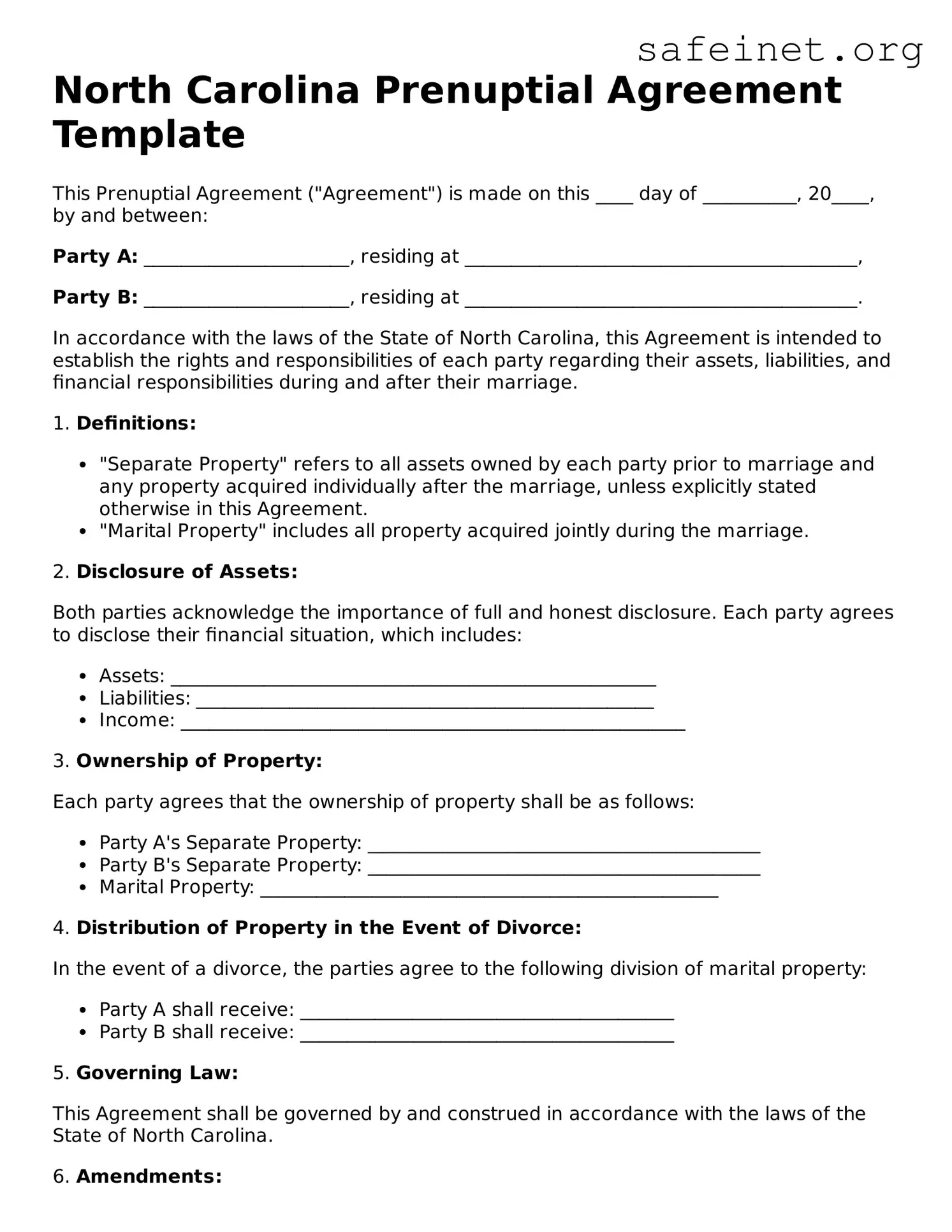North Carolina Prenuptial Agreement Template
This Prenuptial Agreement ("Agreement") is made on this ____ day of __________, 20____, by and between:
Party A: ______________________, residing at __________________________________________,
Party B: ______________________, residing at __________________________________________.
In accordance with the laws of the State of North Carolina, this Agreement is intended to establish the rights and responsibilities of each party regarding their assets, liabilities, and financial responsibilities during and after their marriage.
1. Definitions:
- "Separate Property" refers to all assets owned by each party prior to marriage and any property acquired individually after the marriage, unless explicitly stated otherwise in this Agreement.
- "Marital Property" includes all property acquired jointly during the marriage.
2. Disclosure of Assets:
Both parties acknowledge the importance of full and honest disclosure. Each party agrees to disclose their financial situation, which includes:
- Assets: ____________________________________________________
- Liabilities: _________________________________________________
- Income: ______________________________________________________
3. Ownership of Property:
Each party agrees that the ownership of property shall be as follows:
- Party A's Separate Property: __________________________________________
- Party B's Separate Property: __________________________________________
- Marital Property: _________________________________________________
4. Distribution of Property in the Event of Divorce:
In the event of a divorce, the parties agree to the following division of marital property:
- Party A shall receive: ________________________________________
- Party B shall receive: ________________________________________
5. Governing Law:
This Agreement shall be governed by and construed in accordance with the laws of the State of North Carolina.
6. Amendments:
Any amendments to this Agreement must be made in writing and signed by both parties.
7. Severability:
If any provision of this Agreement is deemed invalid or unenforceable, all remaining provisions shall continue to be valid and enforceable.
IN WITNESS WHEREOF, the parties have executed this Prenuptial Agreement as of the date first written above.
____________________________ ____________________________
Party A's Signature Party B's Signature
____________________________ ____________________________
Print Name Print Name
Date: ___________ Date: ___________
